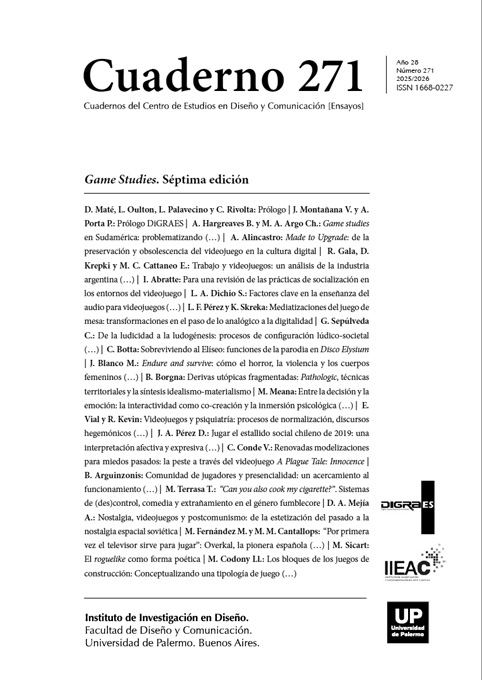Videojuegos y psiquiatría: procesos de normalización, discursos hegemónicos y prácticas normativas en Fran Bow y Mind Scanners
Resumen
Este artículo analiza las dinámicas de poder, normalización y resistencia presentes en dos videojuegos: Fran Bow (Killmonday Games, 2015) y Mind Scanners (The Outer Zone, 2021).
Citas
Amourous, C., Blanc, A. et Peuchlestrade, G. (dir.). (2001). Erving Goffman et les institutions totales. L’Harmattan.
Bachen, C. M., Hernández-Ramos, P. F., & Raphael, C. (2012). Simulating REAL LIVES: Promoting global empathy and interest in learning through simulation games. Simulation & Gaming, 43(4), 437–460. https://doi.org/10.1177/1046878111432108
Belman, J., & Flanagan, M. (2010). Designing games to foster empathy. International Journal of Cognitive Technology, 15(1), 5–15.
Bogost, I. (2007). Persuasive Games: The Expressive Power of Videogames. The MIT Press.
Bourdieu, P., & Passeron, J.-C. (1970). La reproduction: Éléments pour une théorie du système d’enseignement. Éditions de Minuit.
Los autores/as que publiquen en esta revista ceden los derechos de autor y de publicación a "Cuadernos del Centro de Estudios de Diseño y Comunicación", Aceptando el registro de su trabajo bajo una licencia de atribución de Creative Commons, que permite a terceros utilizar lo publicado siempre que de el crédito pertinente a los autores y a esta revista.


